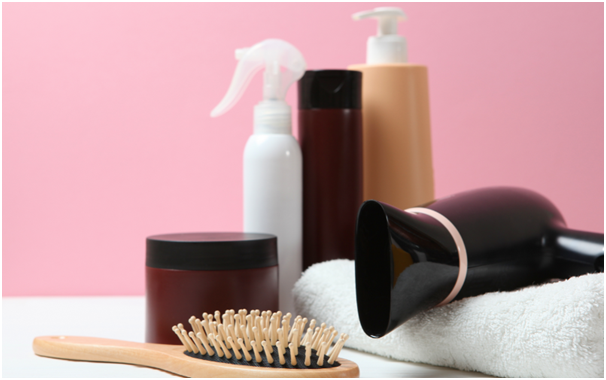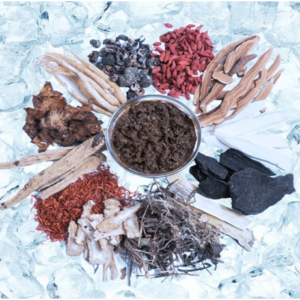The Science Behind the Best Oil and Conditioner for Hair Loss

Addressing hair loss involves using conditioners and hair oils—and comprehending the functions of these products allows you to be proactive with your hair care. After all, the market for hair loss solutions has grown considerably, and numerous products assert their ability to fortify hair and reduce further loss.
Explore the scientific principles underlying hair loss conditioners and hair oils in Singapore, allowing you to identify effective options and primary ingredients to consider.
Understanding Hair Loss Conditioners: What They Do and Don’t Do
Conditioners marketed for hair loss often aim to strengthen hair, reduce breakage, and enhance scalp health. However, it’s essential to recognise that conditioners alone cannot reverse genetic or hormonal hair loss. What they can do, however, is support hair health, which can be beneficial if hair fall is due to weakening or damage.
What to Look for in Conditioners for Hair Loss
Many conditioners for hair loss include ingredients scientifically linked to hair strengthening. Look for:
1. Protein-based Conditioners: Ingredients like keratin, collagen, and amino acids help reinforce the hair shaft, making it less prone to breakage. These proteins repair damaged cuticles and strengthen hair structure.
2. Moisturising Agents: Emollients such as panthenol, glycerin, and hyaluronic acid help retain moisture within the hair shaft, enhancing elasticity and making hair less likely to snap during brushing or styling.
3. Nourishing Oils and Vitamins: Jojoba oil, biotin, and other vitamins are frequently included in the best conditioners for hair loss. These ingredients support scalp health, which is critical for maintaining strong hair growth.
In sum, conditioners can help mitigate some aspects of hair loss due to breakage, but they are supportive rather than curative. When combined with a hair oil or specialised treatment, however, they can contribute to healthy, resilient hair.
Hair Oils: Ingredients to Look For and How They Help
Hair oils are widely used in hair loss management, particularly to maintain scalp health, which is essential for hair growth. Many hair oils claim to nourish the scalp, reduce inflammation, and create a healthy environment for hair follicles. When choosing a product, look for oils that are backed by research.
Key Ingredients in Hair Oils for Hair Loss
1. Rosemary Oil: Some studies indicate that rosemary oil may benefit hair growth. Known for enhancing blood circulation, it may help deliver nutrients to the scalp effectively.
2. Peppermint Oil: Like rosemary, peppermint oil can enhance circulation and is also recognised for its cooling, calming effect on the scalp. Its anti-inflammatory properties can help reduce irritation and support overall scalp health.
3. Castor Oil: Castor oil is known for its high ricinoleic acid content, which may reduce scalp inflammation and enhance follicle health. Although evidence on castor oil’s direct effects on hair growth is limited, its thick consistency makes it a good scalp moisturiser, creating a nourishing environment for hair roots.
4. Jojoba Oil: This oil closely mimics the scalp’s natural sebum, making it effective for hydration without clogging pores. A hydrated scalp is less likely to experience flakiness or dryness, which can contribute to hair shedding.
Do Hair Loss Conditioners and Oils Prevent Shedding?
Although conditioners and oils can enhance scalp health and strengthen hair, they are unlikely to fully prevent hair loss if it’s caused by genetic or hormonal factors. In cases of hair loss due to stress, dietary deficiencies, or scalp issues, these products may be helpful. Individuals experiencing hair thinning or shedding due to environmental damage or styling can use a combination of a targeted conditioner and hair oil to reduce visible hair loss.
How to Use Hair Oils and Conditioners Effectively
1. Focus on the Scalp: When using hair oil, focus on the scalp rather than the hair shaft, especially if targeting hair loss. Apply with a gentle massaging motion to stimulate blood flow.
2. Pair With a Protein Conditioner: A conditioning product with proteins can help fill in weak spots in the hair shaft, making it resilient. Follow up with a leave-in conditioner or hair oil to lock in moisture.
3. Consistency is Key: Both conditioners and oils need time and regular use to have an impact. Incorporating these products into a consistent hair care routine can contribute to a healthy scalp and quality hair over time.
Conclusion
The best conditioner for hair loss, along with the help of hair oils, offers numerous advantages for the scalp and hair, fostering an ideal environment for growth. While they may not be able to cure or reverse hereditary hair loss, they can contribute to strengthening the hair, minimising breakage, and promoting scalp health. Choosing appropriate products containing scientifically validated ingredients and using them consistently will produce the desirable outcomes.
Visit Fayre Beauty and let us help you nourish your hair from root to tip!




